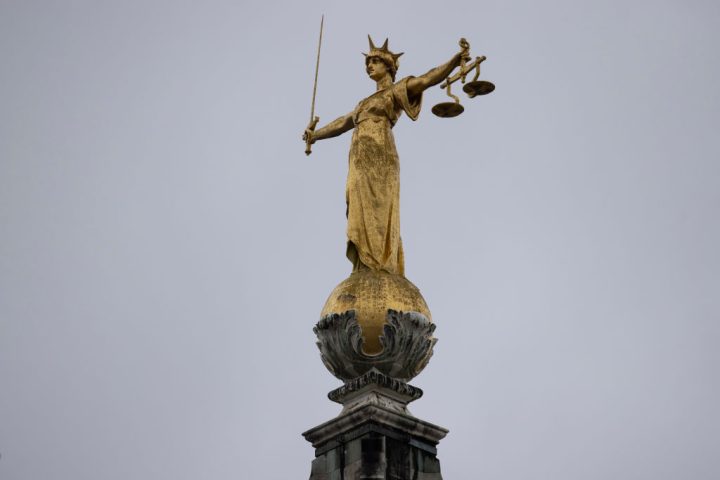The Conservative party used to be the party of individual liberty. No longer, it seems – at least if the Criminal Justice Bill just introduced in the House of Commons is anything to go by.
It’s not simply the worrying powers it promises that will interfere with people at home (for example, it contains police powers to enter homes without a warrant to search for items of stolen property, or to seize the knives you keep at home, potentially without compensation, on the mere suspicion that they might be used criminally). Discreetly lurking in the Bill (in schedule 6, since you ask) is something much more serious: something which comes very close to a power in the police to legislate permanently for what you and I are allowed to do in public.
For a party supposedly devoted to localism and devolving as much power as possible this is simply disgraceful
Nine years ago, local authorities got the power to issue so-called Public Space Protection Orders (PSPOs). Meant to deal with a small number of perennial nuisances – noise, busking, depositing rubbish, drinking in public places late at night, and so on – they allowed local authorities to enact detailed rules, enforceable by on-the-spot fines or if necessary arrest, to prevent them. All the authority had to show was that it thought the amenity of the area was being interfered with, and had consulted with the police, ‘community representatives’ and a few others. Such orders last for up to three years, but can be repeatedly extended.
Under the new Bill, these powers are set to become exercisable under similar conditions not only by a local authority but by any ‘senior police officer’ – a slightly misleading piece of legalese meaning any officer above the pretty junior rank of sergeant. All he has to do is demonstrate that he has consulted the local authority together with community representatives and so on. This proposal needs to worry everyone.
First, however well-intended and sometimes responsibly used, in the hands of local authorities the phenomenon of the PSPO is already turning into an authoritarian’s charter. According to the Manifesto Club, an admirable organisation that monitors such things, bans in various places already include sleeping in one’s car, gathering in groups of more than four, selling good luck charms, playing ball games, swearing, climbing trees and ‘anti-social’ behaviour. And this is without the immensely restrictive, and controversial, bans imposed by some authorities (and upheld by the courts) on saying anything about abortion outside abortion clinics. Do we really need yet more of the same?
But at least with local authorities there is a fig leaf of democracy – councillors are elected. In some cases the decision of whether to make a PSPO has quite rightly involved acrimonious political argument, and public pressure being placed on individual councillors, whether for or against the proposed measure. Coupled with this, there is also the ability for those who object to a PSPO to raise the matter at the next council elections and ask candidates what they intend to do about it.
By contrast, with orders made by police forces, apart from a vague duty to consult the local authority about a proposed ban (and no duty to follow its advice), democracy simply disappears. There is next to no ability for voters to have their say about laws that may drastically affect what they are allowed to do as soon as they venture outside their front door. No doubt this will be justified on the basis that the police have expertise in dealing with the antisocial: but it is still technocratic restriction of personal freedom at its very worst.
Indeed, things get even worse. Also quietly buried in the Bill is an insidious provision that where a police PSPO deals with matters already dealt with by the local authority, the police’s order prevails. Conversely, once a police PSPO is in place in respect of a given activity, the council has no power to issue a PSPO in respect of the same matter. In other words, whenever there’s a contest between the wishes of elected councillors and the priorities of unelected police middle management it’s the latter than wins out. For a party supposedly devoted to localism and devolving as much power as possible to elected representatives of local communities, this is simply disgraceful.
All this is without considering the pressures the police will be under to exercise these new-found powers. A future government might well, for example, pressure them to put restrictions on the right to demonstrate within a certain distance of council property, or to restrict the right of religious protest in the vicinity of any place of worship.
Quite apart from this, police will be sorely tempted to use these powers to save themselves trouble. If they don’t like what people get up to in a given area, who can blame a force with limited resources for giving themselves the right peremptorily to order people to stop doing whatever it is and arrest them (or threaten a £500 fine) if they don’t obey?
In short, this proposal threatens a disaster for individual liberty as well as for the Tories’ reputation as the party of the little man in Barnsley or Billericay. If the government won’t listen, its backbenchers must be encouraged to make a serious fuss and prevent this unpleasantly authoritarian and illiberal measure going through.






Comments